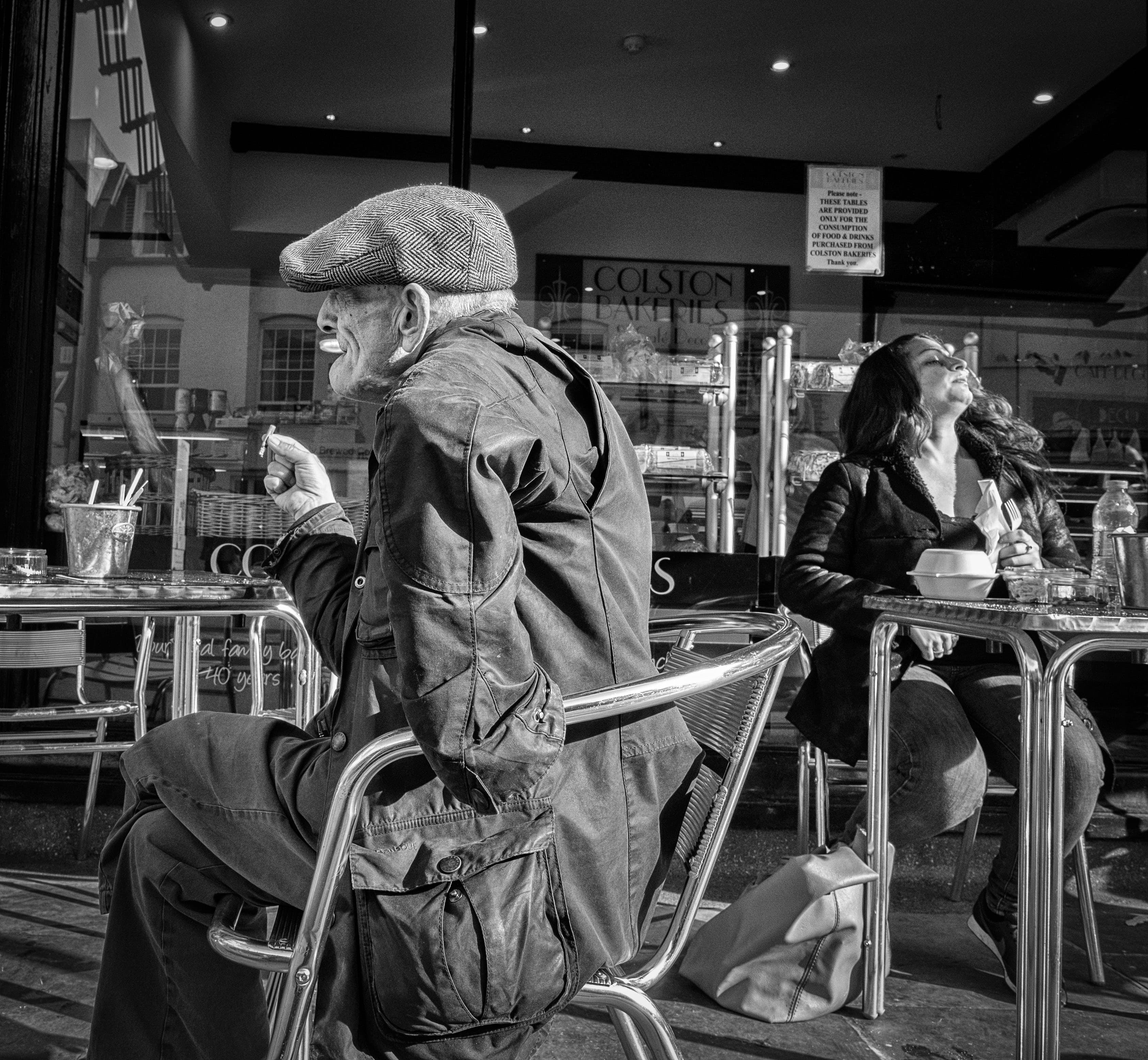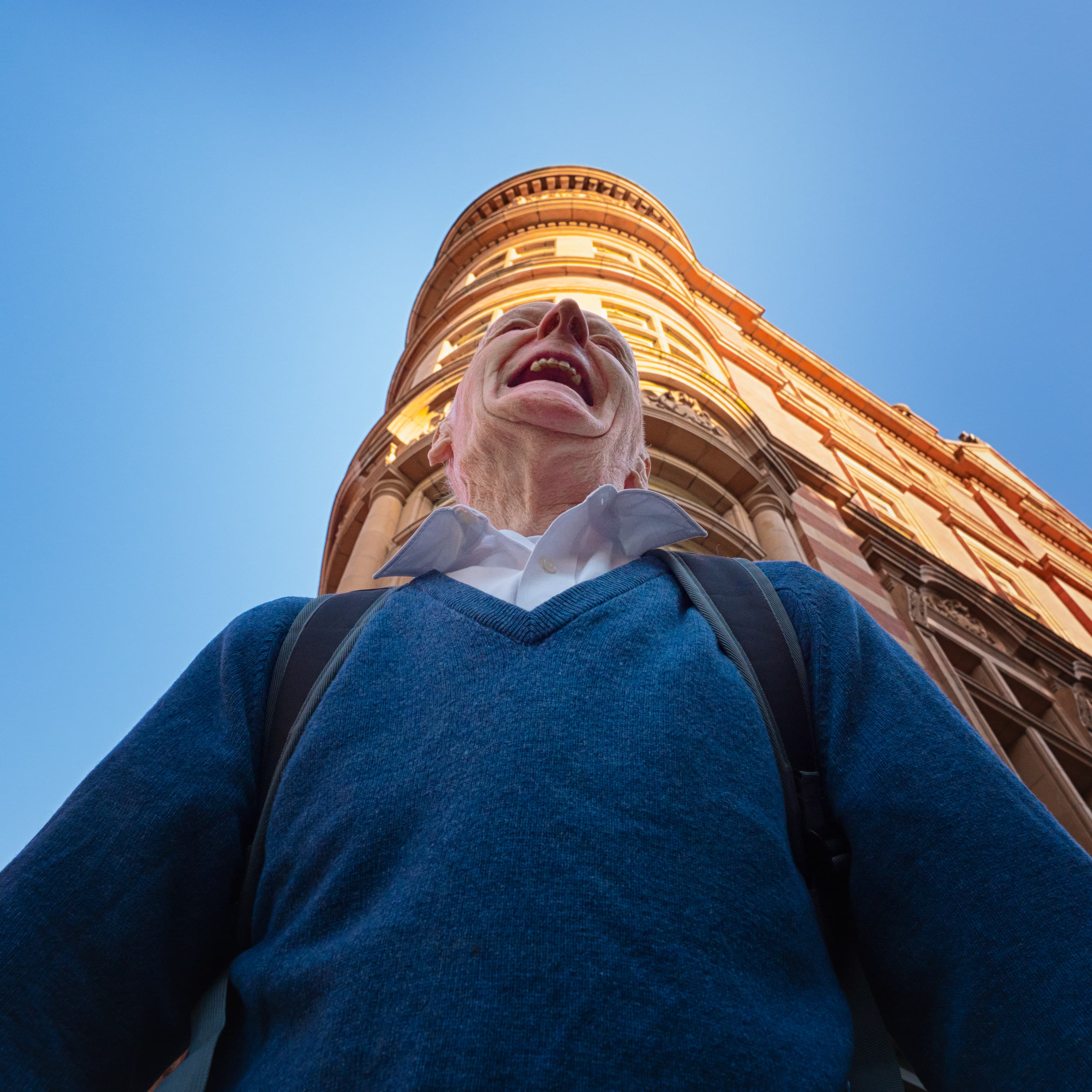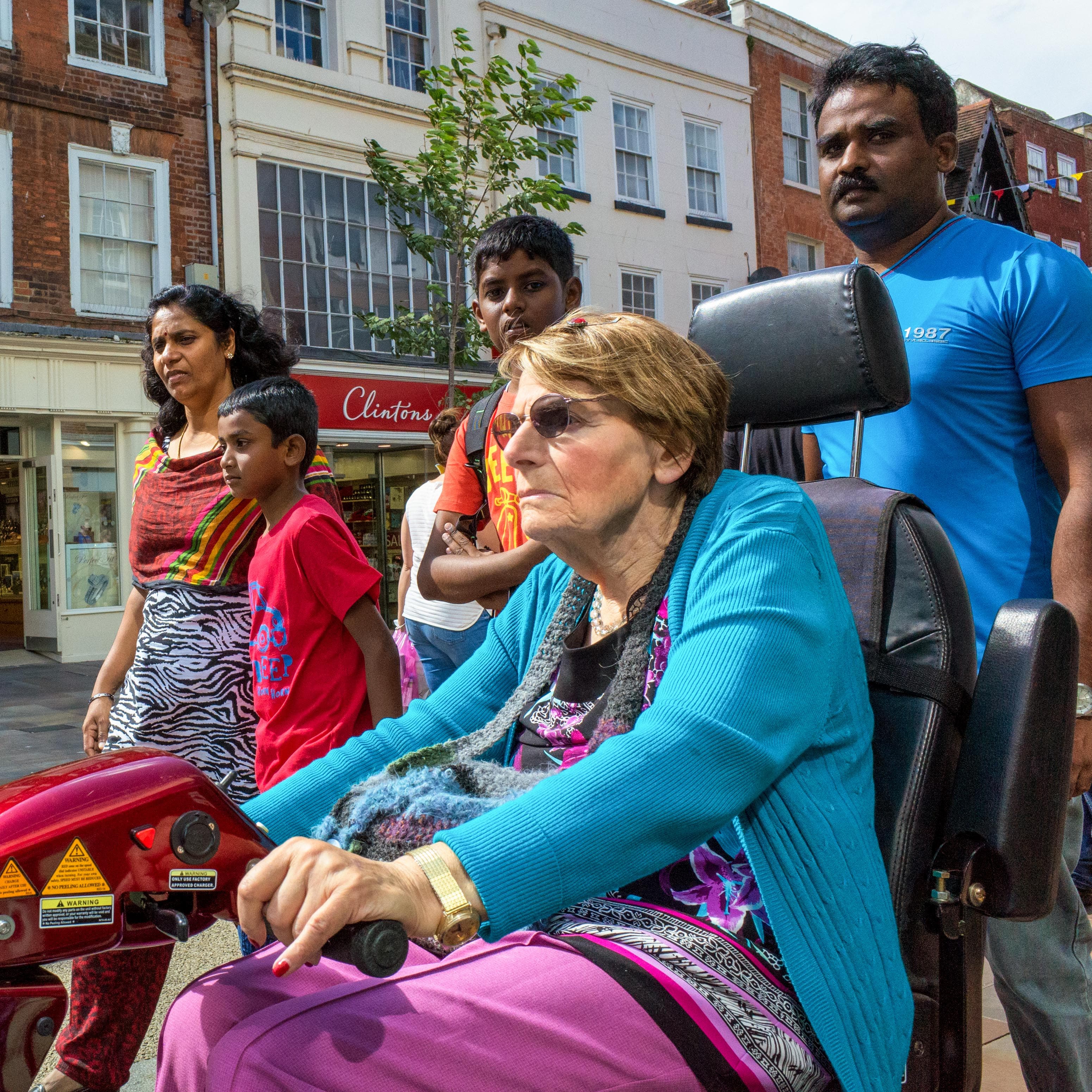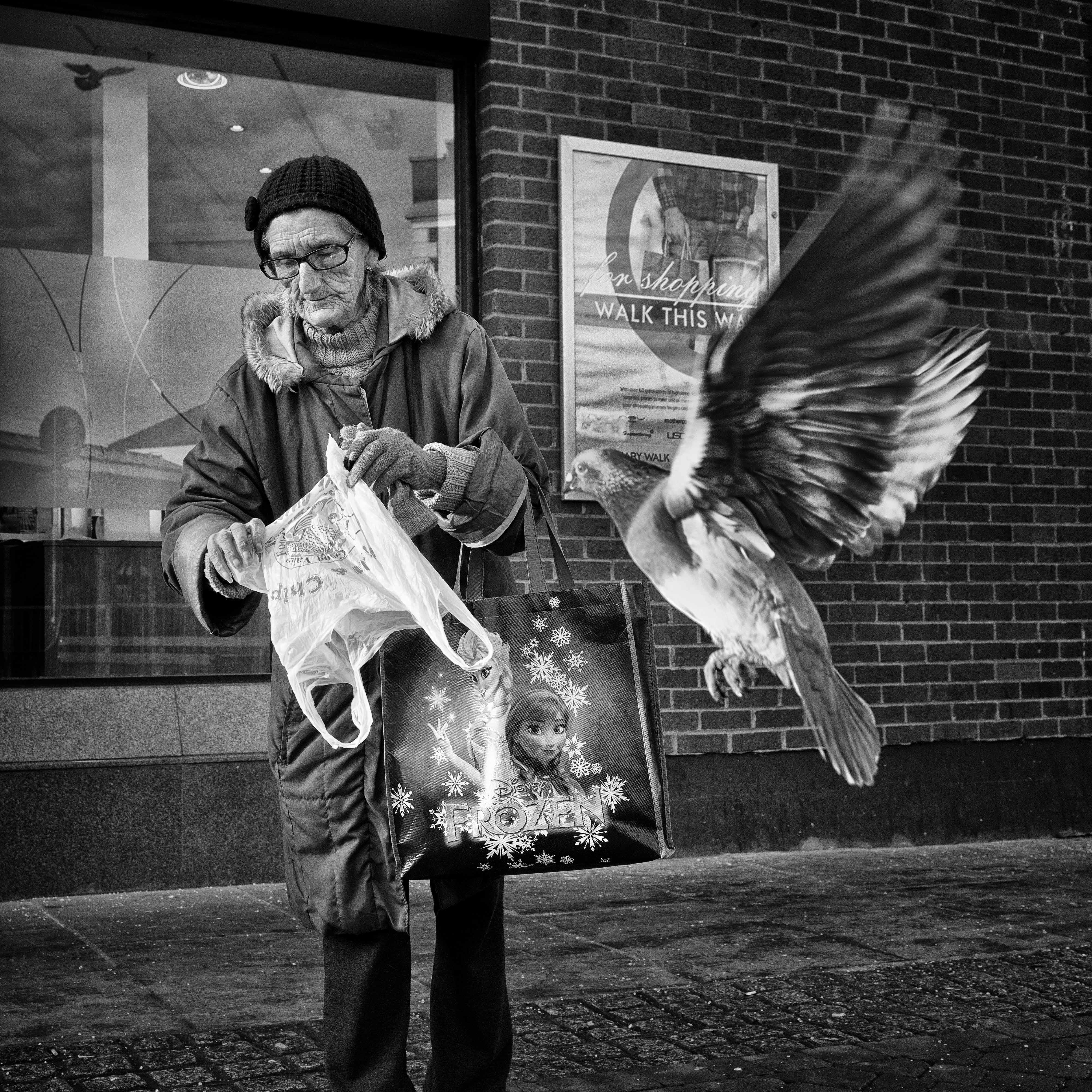It was while working in television as a camera assistant that Miles Pilling first began to suffer with what he assumed was just a bad back. With the symptoms not going away, it took two long years to finally get a diagnosis of Primary Lateral Sclerosis (PLS), a form of Motor Neurone Disease (MND). Displaying a dark sense of humour, Miles often jokes that he has ‘won the Motor Neurone Disease lottery’.
He explains, ‘People with PLS can live 10, 20 or more years after diagnosis, whereas the average life expectancy of somebody with the most common type of MND (amyotrophic sclerosis) is typically just a year. ‘Because I’ve got the slow developing type, I’ve got an opportunity to publicise the fact that there’s this hideous disease. I had to stop work, but I’m the sort of person who needs to do something creative.’ As a result, Miles, who was using a mobility scooter by this point, started to get out and take street photographs.
‘It gave me literally and metaphorically quite a unique perspective in that I was low down. With a mobility scooter, it’s a bit like an invisibility cloak –
I could still weave in and out, but people tended not to see me because I was at a lower level. ‘I found that I can get these interesting pictures compared to the sort I used to get. The other thing is an attitude thing – people seem to be more accepting of somebody taking photographs if they’re sitting in a mobility scooter.’
After a while, Miles decided to start a blog of his work. ‘A friend of mine came up with the name, “Scooter Shooter”, as a joke, so I decided to call it that. I’m not sure whether to carry on with that or not, because I’d quite like my pictures to be recognised as being good, not just because they’ve been taken on a mobility scooter.’

Catching the last rays
Most of Miles’s photographs have been taken in Worcester where he lives. In 2015, he approached a local arts centre who were keen to put on an exhibition of the work. ‘I was slightly concerned that people would come in and recognise themselves, and they might be upset. Some people did recognise themselves, but all of the spotters were positive,’ he says. One particular experience was very interesting. ‘I’d taken a photograph one day of a lady coming down the high street on a mobility scooter, with a family walking next to her. I was in this particular spot because the light was reflecting off a shop window making anybody walking past look like they’d been shot with fill flash. The picture was in the exhibition, and the local newspaper did a small piece using that picture.

Laughter building
A couple of days after the exhibition started, I got an email from a lady saying that she’d seen her mum in the newspaper, but unfortunately she’d died two days ago. I thought I’d upset her – but she was overjoyed to see a moment in her mum’s life she hadn’t known about. She was really, happy I’d taken that picture. ‘I gave them that picture and they had it in front of her coffin at the funeral – which was held in the church just over the road from the exhibition. In fact she’d died the same night that the exhibition opened. It just shows the magic of photography.’

Sky over nine columns, Venice
Lighter load
Although originally shooting with a Canon EOS 6D full-frame camera, Miles switched to using Olympus mirrorless cameras as they are much lighter. ‘I tend to use zoom lenses because it compensates for the fact that I can’t get into place as quickly as I used to. If I’m feeling okay, I might go out with two camera bodies instead, one with a 35mm equivalent lens, one with a 90mm equivalent.’ Miles has used his photography to benefit two charities very close to him. The first is Movement for Hope, a charity set up by some PhD neurology students from UCL, and the second is the Motor Neurone Disease Association. Through both of these charities, he has been exhibited several times.

Rita Zacchi
Last year marked the 40th anniversary of the MND Association, during which time Miles was asked to include an image in an exhibition at the OXO Tower on the Southbank. As part of that, an auction was held and one of Miles’s images sold for £2,000. It doesn’t stop there. Amazingly, Miles estimates that he’s raised more than £10,000 for the MND Association, a fantastic achievement which really shows the power of photography to make a difference on an individual level and further beyond.

Frozen pigeon

Miles Pilling
Miles Pilling is an amateur photographer living in Worcester. His blog ‘Scooter Shooter’, can be found at scootershooter.co.uk. The project and book 26 Miles 4 MND, in collaboration with the photographer Cristian Barnett, can be found here








